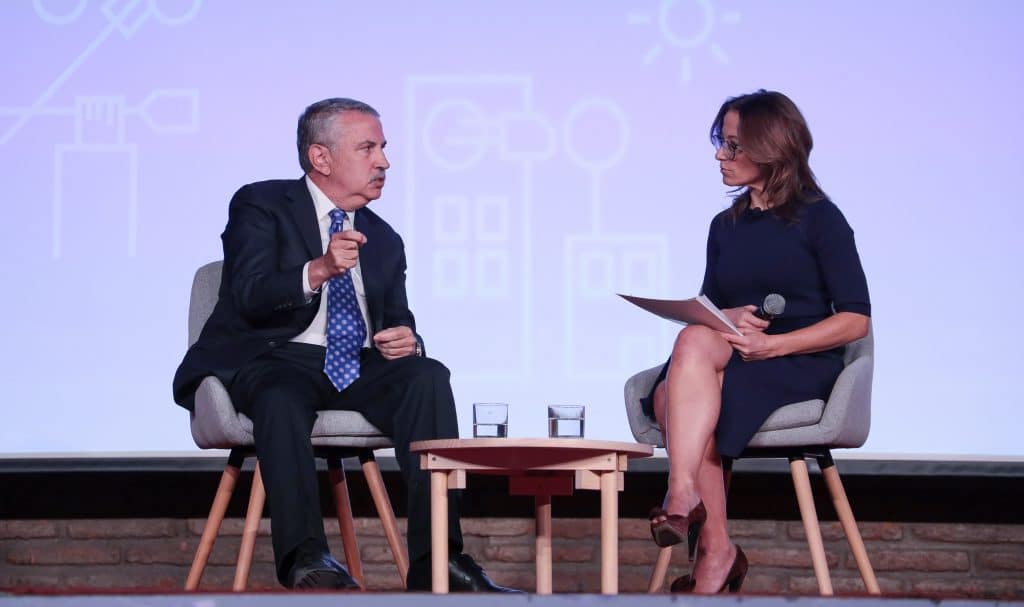The author, journalist, and three-time a Pulitzer Prize winner presented his book “Thank you for being late” to authorities, academics, and businesspeople.
After his first visit in Chile, the last 3rdof June in the Fresno assembly hall at Universidad Católica, the columnist of the New York Times, Thomas Friedman said: “technology is evolving faster than the average Chilean, or American can adapt. Therefore, we must be ready to be a life-long learner, that is the social contract coming to you in Santiago and to every neighborhood around”.

The event organized by Centro de Innovación UC, Grupo CAP through its Espacio de Innovación y Fundaciones Rassmuss, called more than 800 people, including authorities, academics, executives, businesspeople, students, and general public. The objective of the talk was the presentation of his book “Thank you for being late,” the publication explains the main challenges of the modern society due to the acceleration of three main forces, which according to his explanation, converge simultaneously and will reconfigure the planet: globalization, climate change, and technology.
Thomas Friedman emphasizes in his first conference in the country that “currently, these three accelerations are all interacting with each other and they aren’t just changing your world, they are reshaping your world. Therefore, adaptation to this new configuration is based on the attitude of resilience and propulsion (proactivity) from entities and people.”
After the presentation, the Chilean journalist, Constanza Santa María, interviewed Thomas Friedman, opportunity in which the author explained the basis of his book, the topics covered in the presentation and the questions of the public.
After that, a panel discussion was carried out about “Technology, globalization and climate change”. This had the participation of Margarita Ducci Budge, Executive Director of Red Pacto Global Chile; Juan Carlos Muñoz, Director of Centro de Desarrollo Urbano Sustentable; Pedro Bouchon, Civil Engineer with specialization in Chemical Engineering at Pontificia Universidad Católica de Chile and PhD at School of Food Biosciences at University of Reading; Julio Pertuzé, Co-Director of Master Degree of Innovation of Universidad Católica, and Advisor of the Minister of Economy in terms of Future Economics; Claudia Bobadilla Ferrer, Director of Cintac y Stefan Franken Osorio, attorney of CAP and member of the Advisory board of Corporative Sustainability program at Pontificia Universidad Católica de Chile.


